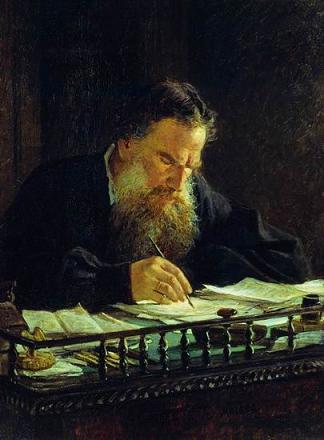Leo Tolstoy Archive
Written: 1912
Source: The Forged Coupon: And Other Stories, by Leo Tolstoy, 1912, Translated from the Russian by Herman Bernstein, published by Ogilvie Publishing Company, 57 Rose Street, New York, produced for Gutenberg.org by Judith Boss and David Widger, 2006.
Transcription/Markup: Andy Carloff
Online Source: RevoltLib.com; 2021

Asking Father Missael on his arrival to take a seat, the bishop told him what had happened in his diocese.
“It all comes from weakness of spirit and from ignorance. You are a learned man, and I rely on you. Go to the village, call the parishioners together, and convince them of their error.”
“If your Grace bids me go, and you give me your blessing, I will do my best,” said Father Missael. He was very pleased with the task entrusted to him. Every opportunity he could find to demonstrate the firmness of his faith was a boon to him. In trying to convince others he was chiefly intent on persuading himself that he was really a firm believer.
“Do your best. I am greatly distressed about my flock,” said the bishop, leisurely taking a cup with his white plump hands from the servant who brought in the tea.
“Why is there only one kind of jam? Bring another,” he said to the servant. “I am greatly distressed,” he went on, turning to Father Missael.
Missael earnestly desired to prove his zeal; but, being a man of small means, he asked to be paid for the expenses of his journey; and being afraid of the rough people who might be ill-dis-posed towards him, he also asked the bishop to get him an order from the governor of the province, so that the local police might help him in case of need. The bishop complied with his wishes, and Missael got his things ready with the help of his servant and his cook. They furnished him with a case full of wine, and a basket with the victuals he might need in going to such a lonely place. Fully provided with all he wanted, he started for the village to which he was commissioned. He was pleasantly conscious of the importance of his mission. All his doubts as to his own faith passed away, and he was now fully convinced of its reality.
His thoughts, far from being concerned with the real foundation of his creed—this was accepted as an axiom—were occupied with the arguments used against the forms of worship.